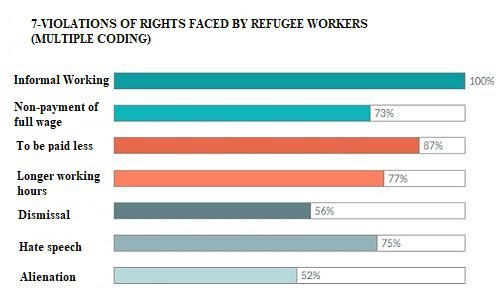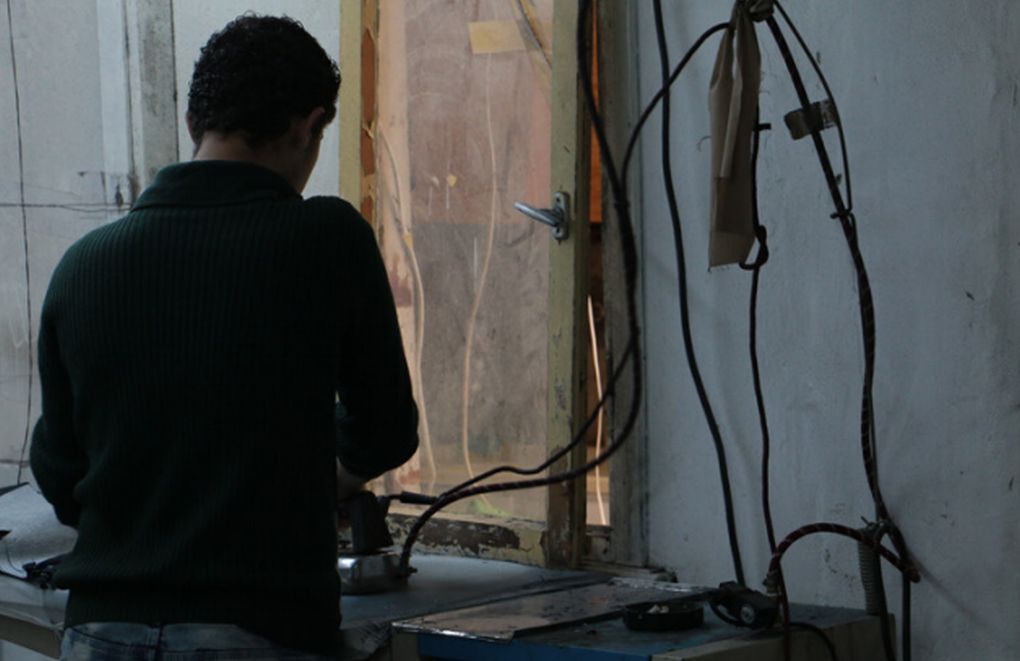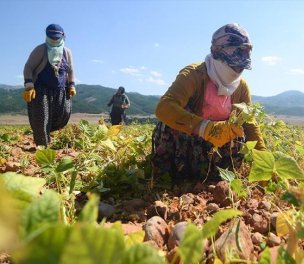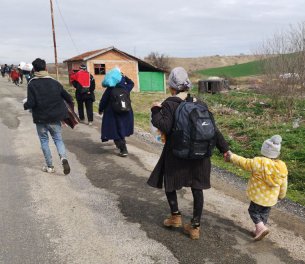* Photo: Onur Pazarlı
Click to read the article in Turkish / Kurdish
The İzmir-based Leather, Textile, Shoe Workers' Association has released its Refugee Workers Report. The report has listed the economic and social abuses faced by refugee workers in Turkey.
In preparing this report, association members had face-to-face meetings with 100 refugee workers, including 19 women, working in Işıkkent Shoemakers Estate and MTK Textile Manufacturers Arcade in Bornova, textile and leather workshops in Basmane and textile workshops in Karabağlar.
In these face-to-face surveys conducted from March 2 to 13, 2020, 77 of the refugee workers said that they were from Syria, 12 said that they were from Afghanistan, 6 from Iran and 5 from Iraq.
Eight refugee workers said that they were not literate and eight others could only read and write. While 65 of them said that they were primary school graduates, 19 said that they graduated from a secondary school.
10 of the participants indicated that they had been in Turkey for the last three years, 14 of them for four years, 27 of them for five years, 34 of them for six years and 15 had been in Turkey for seven years.
Workers cannot get work permits
The report has underlined that work life ranks first in the violations of rights faced by refugees. Some highlights from the report are as follows:
"According to the data of the Directorate General of International Workforce affiliated with the Ministry of Family, Labor and Social Services, while the number of refugees-migrants who could get a work permit was 115,837 in 2018, only 34,573 Syrians could receive a work permit.
"According to the Health and Safety Labor Watch data, at least 112 refugee workers lost their lives in Turkey in 2019. The number of refugee workers who died in occupational homicides in the last 7 years is 548.
No workers work for 8 hours, no overtime pay
"When we asked them about their working hours, 35 workers said that they were working 9-10 hours a day while 65 workers indicated that they were working for 11-12 hours. Workers also stated that they were not made any overtime payment for working over 8 hours. The option of 8 and less than 8 hours could not be chosen by the workers.

They are paid less than workers from Turkey
"10 participants of our survey informed us that they gained 400 Turkish Lira (TRY) per week, 35 participants said 500 TRY per week, five participants 550 TRY per week, 40 participants 600 TRY per week and 10 participants said that they gained 700 TRY per week. The monthly income of half of the workers is less than the minimum wage.
"While only 40 percent of the workers could get a salary equal to minimum wage, only 10 percent could gain more than that. Workers emphasized that they were paid 200-250 TRY less than the workers from Turkey.
"When we asked them 'How many months a year do you work?', only 29 percent answered that 'they worked all year long.' While seven workers said that they worked for 6 months, eight workers said 8 months, 14 workers said 9 months and 22 workers said that they could work for 11 months a year.
Workers not insured, government doesn't inspect
"All 100 workers who participated in the survey said that they did not have social security. The total insurance premium day of 100 workers is zero. None of the workers has ever faced an inspection by the state.
"All of the workers said that they were not insured because they were refugees, 73 of them said they could not get their full wage because of being a refugee, 87 of them said that they were paid less than the workers from Turkey because they were refugees, 77 of them said that they were working longer than workers from Turkey because of being a refugee, 56 of them said that they were unjustly dismissed because they were refugees, 75 refugees said that they were subjected to hate speech because of being a refugee, 52 workers were alienated by their colleagues and 12 of them said that they were subjected to verbal and physical violence.
Hate speech and discrimination
"To the question 'Who resorted to hate speech and alienation towards you?", 52 workers said that it was their boss, 48 workers said it was their task master, 35 workers said it was the workers in the same workplace and 55 workers said it was other workers." (AS/SD)







